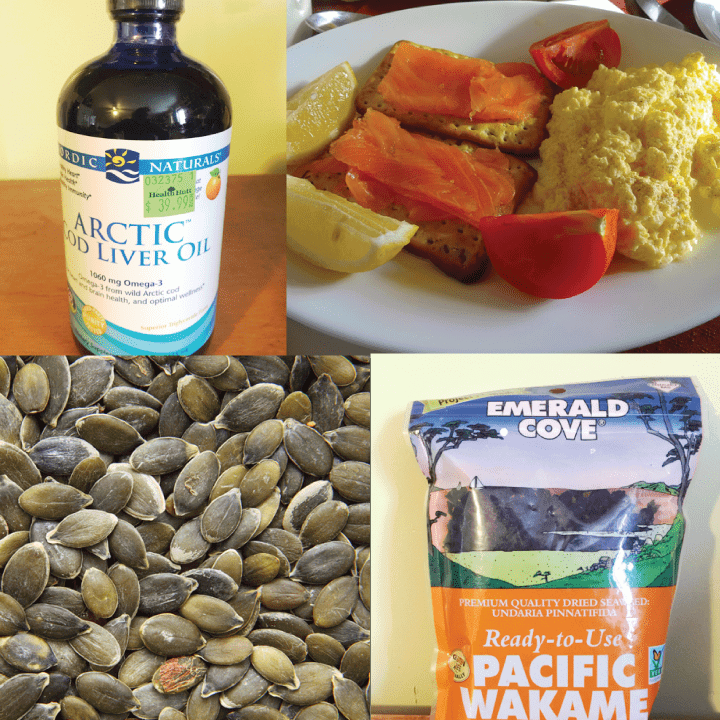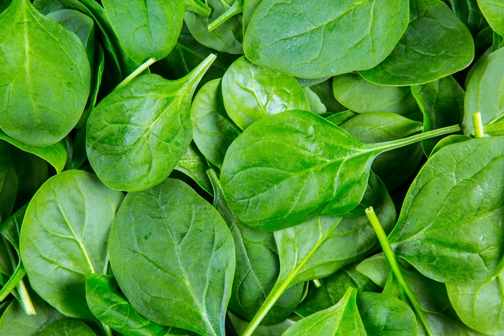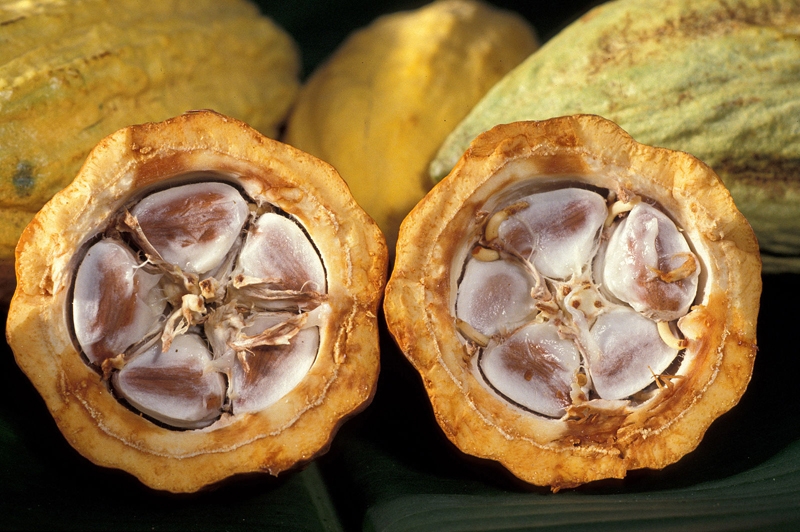In order to maintain balance, it is important get proper nutrition. Here are 6 important nutrients that you don’t want to overlook.
Magnesium
Doctor Taz, an Integrative Medicine practitioner, says that magnesium plays a clear role in hormone balancing. After supplementing with magnesium, hormones begin to move down the right pathways. It is also a foundational micronutrient for neurotransmitter regulation and detoxification. Low magnesium affects detoxification, restless nights, restless legs, anxiety, ADHA, and depression. (3) Getting more magnesium can aid sleep and boost mood. Stress itself is a major culprit in hormonal imbalance. Additionally, the bioavailability of Vitamin D depends on Magnesium. The enzymes needed for the metabolism of Vitamin D require magnesium. (5) According to Science Daily, in 2018 up to 50% of the US population is deficient in Magnesium. (2)
Foods high in magnesium include pumpkin seeds, cacao, spinach, almonds, and other nuts, seed and leafy greens.
Vitamin D
Vitmain D is a pro-hormone, which means that the body can convert it into a hormone. We know that our body cannot produce its own Vitamin D and that it has a number of positive health impacts including better mood and supporting absorption of calcium. If vitamin D is low, the parathyroid can overproduce parathyroid hormone in order to get calcium from other areas of the body such as bones. Low levels of Vitamin D have also been linked to low levels of testosterone in men.(6) Around 40% of the people in the US are deficient in vitamin D.
Cod liver oil is an excellent source of vitamin D. Other sources include egg yolks, fatty fish and mushrooms. Mushrooms contain D2 and animal sources contain D3.
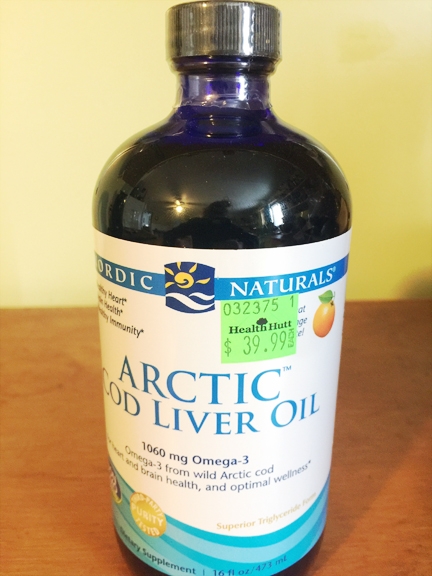
B Vitamins
B vitamins are important for efficient liver detoxification of unwanted toxins and aid in the production and metabolism of hormones and neurotransmitters. In particular, B12 is essential for making serotonin, dopamine, and melatonin. B12 is also a part of methylation, which Is a process the liver uses to break down cellular waste products and excess hormones. (4) This article by Hormones & Balance outlines the importance of B Vitamins and provides deficiency checklists. Having a B Complex around is not a bad idea, especially if you drink caffeine or are under a lot of stress - both of which are known to deplete the body of nutrients like b vitamins and magnesium.
B12 can be more difficult to get from a plant-based diet. Foods high in B12 include organ meats, clams, sardines, fortified nutritional yeast, and other fatty fish. Fermented foods made with lactic acid bacteria that can produce B12. B vitamins in general can be garnered from a well balanced diet of whole grains, nut and seeds, dark leafy greens and fruits. In general, egg, dairy and meat products contain more.
Iodine
Iodine is an essential trace mineral. It is necessary for hormone production and a properly functioning immune system. It is particularly important for thyroid function. Dr. David Brownstein reported that 90% of his patients were deficient in iodine under the argument that current dietary standards for iodine are at a bare minimum. (1) It may be good to check with your doctor about your thyroid function and iodine. Iodine can be absorbed through the skin. Many people take iodine by putting a few drops of Lugel’s Solution on the wrist and rubbing it in.
Iodine is found is sea vegetables, sea food, and dairy products.
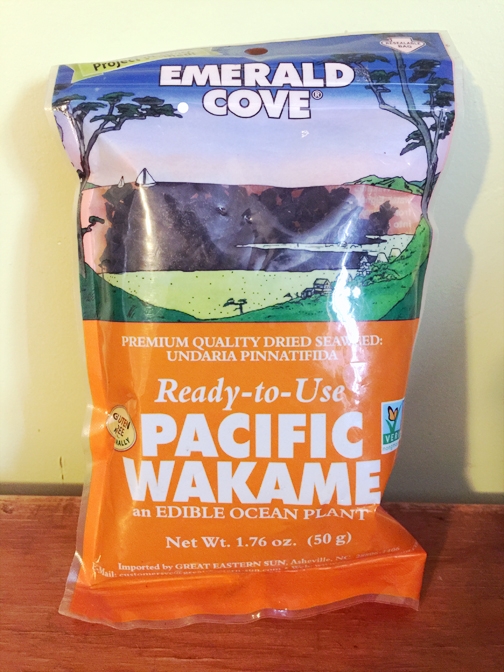
Sea vegetables contain iodine.
Selenium
As a powerful antioxidant, selenium has the ability to reduce DNA damage, reduce oxidative stress on tissues, boost the immune system and help prevent cognitive decline. It is important for the proper functioning of the thyroid gland, the tissue of which contains the highest amount of selenium in the entire body. It protects the thyroid from oxidative stress and is necessary for thyroid hormone production. (7)
Selenium can be found in oysters, brazil nuts, fatty fish, eggs, sunflower seeds, shiitake mushrooms.

Salmon and eggs make for an Irish breakfast? Photo from LINK
Zinc
Lara Briden considers zinc her favorite supplement for period health. Among its benefits:
- Zinc reduces inflammation and prostaglandins, which in turn improves period pain.
- Blocks excess androgens like testosterone
- Together with iodine and selenium, zinc is essential for activation and synthesis of thyroid hormone
- Supports the hippocampus (8)
One in three women may be deficient in zinc. Zinc deficiency symptoms include hair loss, dermatitis, impaired immune function and white spots on the fingernails. (8)
Foods high in zinc include oysters, other shellfish, hemp seeds, pumpkin seeds, and cashews.
Take Aways
-
Keep an eye on vital nutrients, especially nutrients like vitamin D and Magnesium that a lot of people in the US are deficient in.
-
Consider having an arsenal of basic supplements – a high quality multivitamin is a great place to start. A good multivitamin should contain all of the above nutrients.
-
Plant food does not contain a lot of b vitamins, iodine, selenium, or zinc. If you are vegetarian or vegan, make sure you are sourcing these nutrients.
-
Nuts, seeds, mushrooms, fatty fish and shellfish contain important nutrients that are hard to get elsewhere. Though these foods are not extra popular in American cuisine, find some favorite meals that include them.
Sources
- Iodine Deficiency, Breast Health, and Hormone Balance. Women’s International Pharmacy. Retrieved from https://www.womensinternational.com/blog/iodine-deficiency/ Nov 23, 2020.
- Anne Marie Uwitonze, Mohammed S. Razzaque. Role of Magnesium in Vitamin D Activation and Function. The Journal of the American Osteopathic Association, 2018; 118 (3): 181 DOI: 10.7556/jaoa.2018.037
- Dr. Taz. Why Magnesium Matters. Dr. Taz MD Integrative Medicine. Retrieved from https://doctortaz.com/why-magnesium-matters/
- Locke Hughes. “Why You Need B Vitamins for Hormone Balancing.” Binto. September 22, 2019. Retrieved from https://mybinto.com/womens-health/why-you-need-b-vitamins-for-hormone-balancing/
- “Magnesium and vitamin D – benefits, dosages and which types of supplements to take”. BetterYou. October 22, 2019. Retrieved from https://betteryou.com/health-hub/magnesium-vitamin-d-benefits-dosages-types-supplements/#vitamind2
- Emma Thornton. “How does vitamin D affect your hormones?” A.Vogel. April 01, 2019. Retrieved from https://www.avogel.co.uk/food/how-does-vitamin-d-affect-your-hormones/
- Jillian Kubala. “7 Science-Based Health Benefits of Selenium”. Health Line. August 20, 2019. Retrieved from 1) https://www.healthline.com/nutrition/selenium-benefits#4.-Helps-prevent-mental-decline
- Lara Briden. “Why Zinc Is My Favorite Supplement for Period Health”. Lara Briden – The Period Revolutionary. September 22, 2020. Retrieved from https://www.larabriden.com/7-ways-zinc-rescues-hormones/
